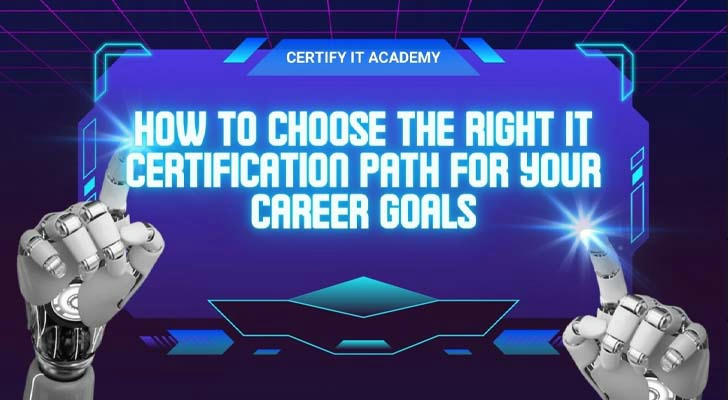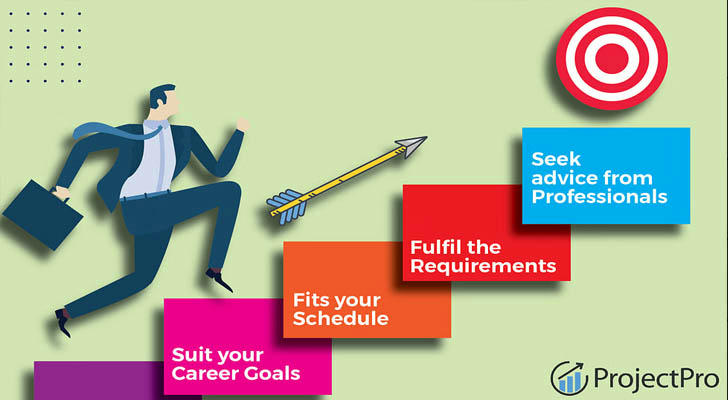How to Choose the Right Certification for Your Career Goals: A Fun Guide to Leveling Up
Imagine you’re playing a video game, and you’ve just unlocked a new skill or power-up. That’s what earning a certification can feel like in the real world—it’s a way to level up your career, unlock new opportunities, and stand out in a crowded job market. But with so many certifications out there, how do you choose the right one for your goals? Let’s dive into the world of certifications, explore how they work, and have some fun along the way!

What Are Certifications, and Why Do They Matter?
Certifications are credentials that show you’ve mastered specific skills or knowledge in a particular field. They’re like badges of honor that prove you’re qualified to do a job or task. Here’s why they’re awesome:
- Boost Your Resume: Certifications make you stand out to employers by showing you’ve gone the extra mile.
- Increase Earning Potential: Many certifications can lead to higher salaries or promotions.
- Expand Your Skills: They’re a great way to learn new things and stay competitive in your industry.
- Build Confidence: Knowing you’ve earned a certification can give you a sense of accomplishment and readiness.
The Certification Quest: How to Choose the Right One
Choosing the right certification is like picking the perfect character class in a game—it depends on your strengths, interests, and goals. Here’s how to navigate the process:
1. Know Your Career Goals
What’s your ultimate career mission? Do you want to become a cybersecurity expert, a project management pro, or a graphic design wizard? Your goals will help narrow down the certifications that align with your aspirations.
2. Research Industry Trends
Some certifications are more valuable than others, depending on your industry. For example:
- IT and Tech: Certifications like CompTIA, Cisco (CCNA), or AWS Certified Solutions Architect are highly sought after.
- Business and Management: Consider PMP (Project Management Professional) or Six Sigma for leadership roles.
- Creative Fields: Adobe Certified Expert or Autodesk certifications can boost your design skills.

3. Check the Requirements
Some certifications require prior experience, specific coursework, or passing an exam. Make sure you’re eligible before diving in.
4. Consider Time and Cost
Certifications can range from a few weeks to several months of study, and costs vary widely. Choose one that fits your budget and schedule.
5. Look for Recognized Credentials
Not all certifications are created equal. Look for ones that are widely recognized and respected in your industry.
A Case Study: Sarah’s Certification Journey
Meet Sarah, a marketing professional who wanted to transition into digital marketing. She researched certifications and found that Google Analytics and HubSpot Content Marketing were highly valued in her field.
Sarah started with the Google Analytics certification, which took her about two weeks to complete. She learned how to track website traffic, analyze user behavior, and create data-driven marketing strategies. Next, she tackled the HubSpot certification, which taught her how to create engaging content and optimize it for search engines.
With her new certifications, Sarah landed a job as a digital marketing specialist at a growing tech company. She credits her career shift to the skills and confidence she gained through her certification journey.

Fun Certification Facts
Let’s spice things up with some surprising tidbits:
- The Oldest Certification: The Certified Public Accountant (CPA) credential dates back to 1896 and is still one of the most respected certifications today.
- Most Popular IT Certification: CompTIA A+ is a beginner-friendly certification that has launched countless IT careers.
- Creative Certifications: Did you know you can become a certified LEGO builder? It’s a real thing!
- Global Impact: Certifications like PMP are recognized worldwide, making them a great choice for international careers.
Why Certifications Are Cool
Certifications are more than just pieces of paper—they’re tools for growth and exploration. Here’s why they’re so exciting:
- Skill-Building: Certifications help you learn new skills and stay ahead in your field.
- Career Flexibility: They can open doors to new industries or roles you might not have considered.
- Personal Achievement: Earning a certification is a tangible way to measure your progress and success.
- Networking Opportunities: Many certification programs include access to professional communities and events.

Fun Experiments to Try at Home
Want to explore certifications in a fun way? Here are some activities:
- Take a Free Online Course: Platforms like Coursera, Udemy, and LinkedIn Learning offer free or low-cost courses that can give you a taste of a certification program.
- Shadow a Professional: Spend a day with someone in your dream job and ask them about the certifications they’ve earned.
- Create Your Own Certification: Design a fun “certification” for a skill you already have, like “Certified Coffee Connoisseur” or “Master of Dad Jokes.”
These activities are a great way to explore different fields and see if a certification might be right for you.
Conclusion: Your Certification Adventure Awaits
Choosing the right certification is like embarking on a quest—it requires research, preparation, and a bit of courage. But the rewards are worth it: new skills, career opportunities, and the satisfaction of achieving a goal.
So whether you’re aiming to become a certified IT pro, a project management guru, or a creative genius, remember that every certification is a step toward leveling up your career. And who knows? Your next certification might just be the key to unlocking your dream job.
Fun Fact: The first IT certification, the Certified Data Processor (CDP), was introduced in the 1960s. Today, there are thousands of certifications across every industry imaginable—so your perfect match is out there!
